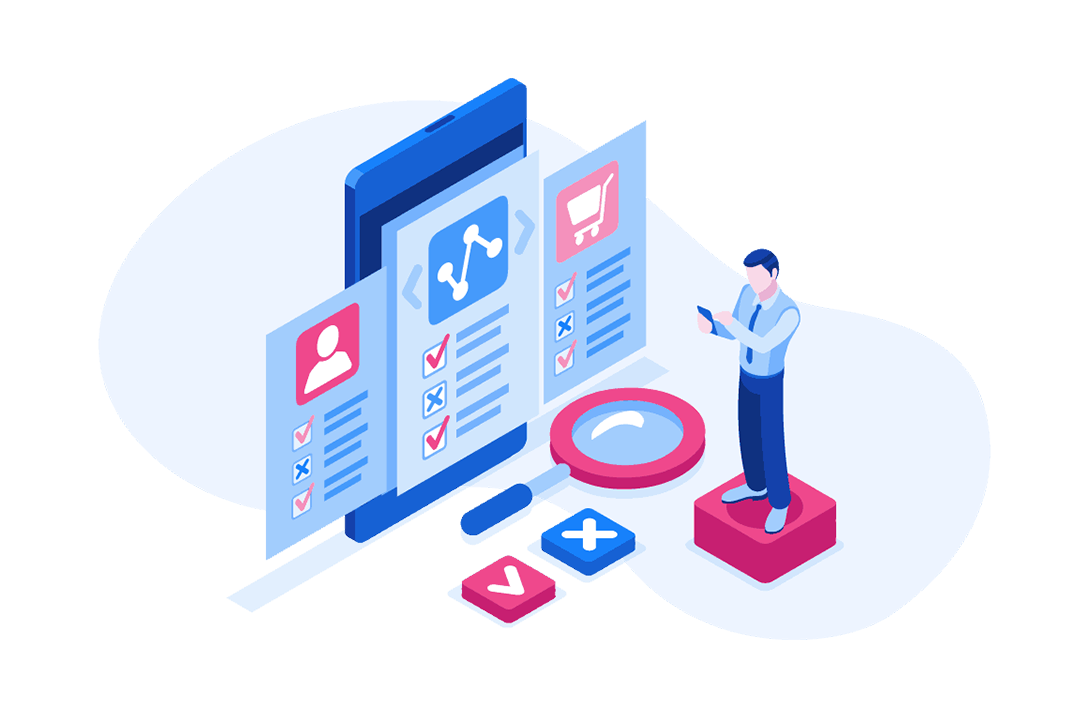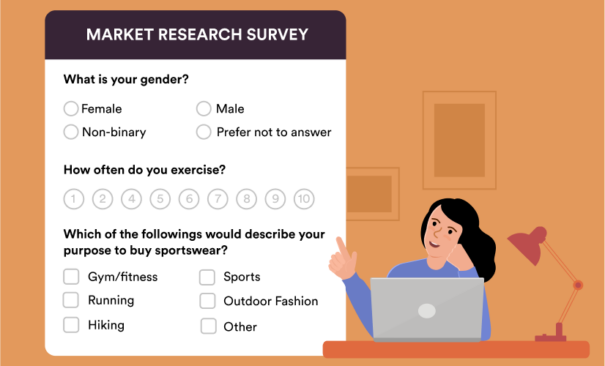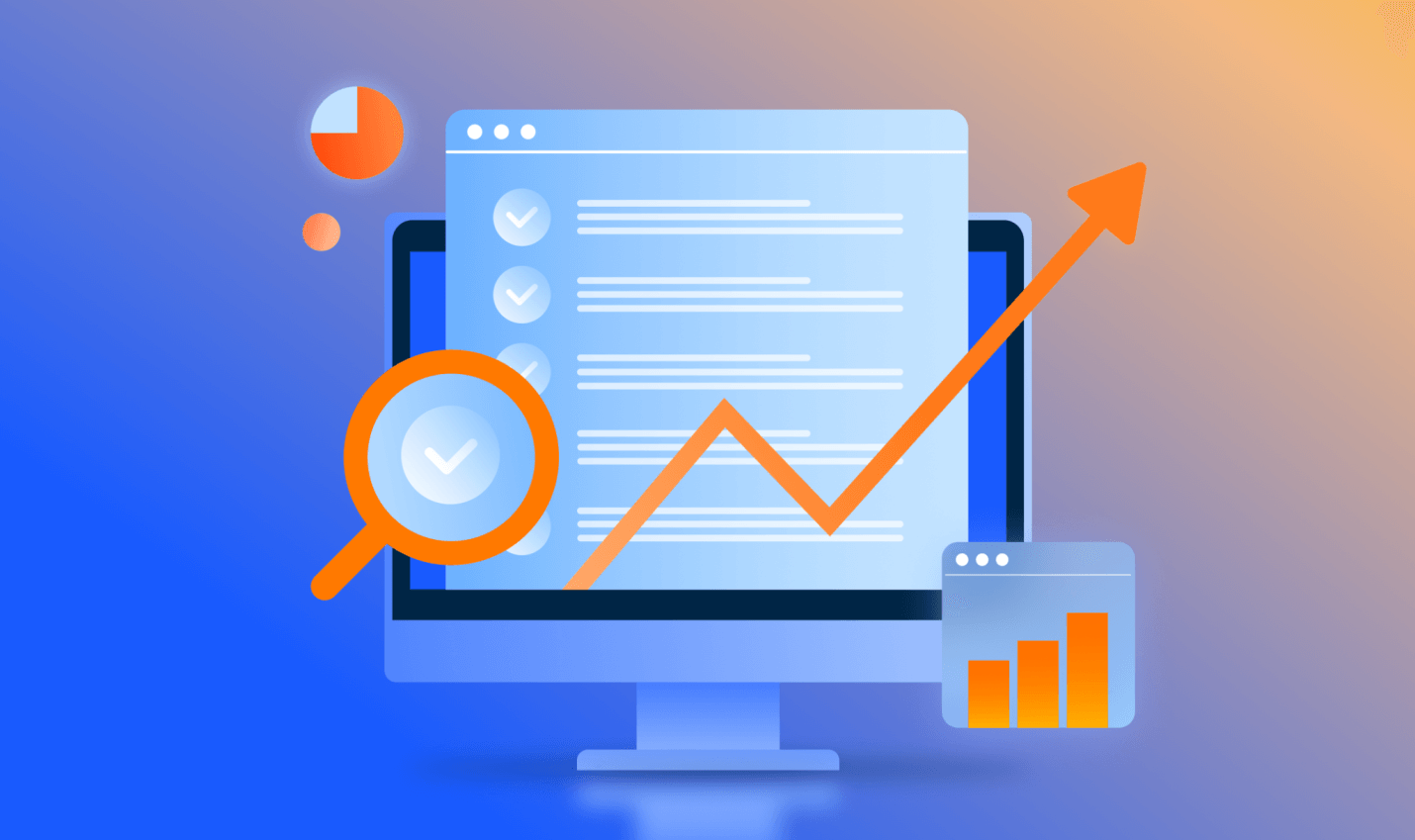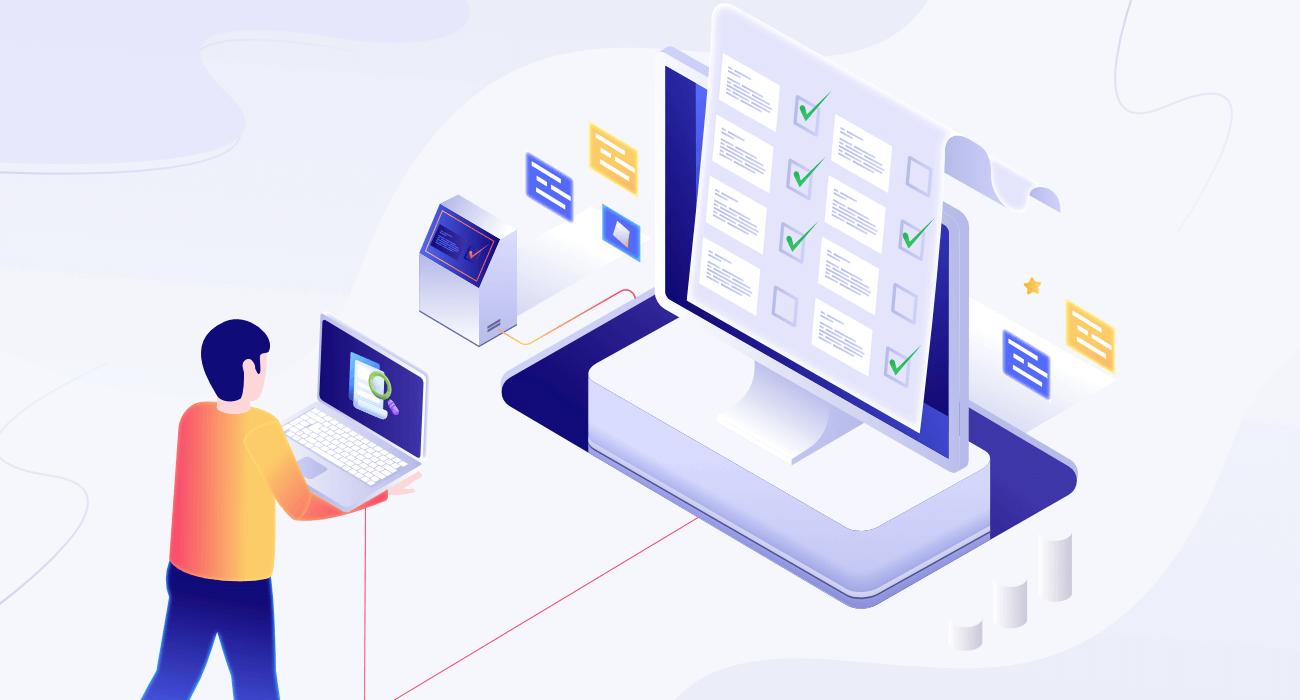In today’s rapidly evolving business landscape, market research plays a pivotal role in enabling organizations to gain insights into consumer preferences, market trends, and competitive landscapes. With the advent of technology, market research survey software has emerged as a powerful tool that empowers businesses to gather valuable data and make informed decisions. This article delves into the realm of market research survey software, exploring its benefits, key features, and how it facilitates data-driven decision-making.
What is Market Research Survey Software?

Market research survey software refers to a specialized technology solution that enables organizations to design, distribute, collect, and analyze surveys for market research purposes. This software streamlines the entire survey process, from questionnaire creation to data analysis, providing businesses with valuable insights into consumer behavior, market trends, and customer satisfaction.
Why is Market Research Survey Software Essential?
Market research survey software is essential for several reasons:
- Efficiency: It automates the survey process, reducing manual effort and time required to conduct surveys.
- Data Accuracy: The software ensures accurate data collection, eliminating errors caused by manual data entry.
- Cost-Effectiveness: Traditional market research methods can be costly, but survey software offers a more affordable alternative.
- Scalability: It allows businesses to scale their research efforts easily, catering to larger sample sizes and diverse demographics.
- Real-Time Insights: Market research survey software provides instant access to data, enabling timely decision-making.
Key Features of Market Research Survey Software
When selecting market research survey software, it’s essential to consider key features that enhance its effectiveness:
- Questionnaire Design: Intuitive interfaces and customizable templates facilitate the creation of visually appealing and engaging surveys.
- Distribution Channels: The software should support various channels such as email, social media, and website embedding for broad reach.
- Response Collection: It should enable the collection of responses in multiple formats, including text, multiple-choice, and rating scales.
- Data Analysis: Advanced analytics capabilities like data segmentation, cross-tabulation, and statistical analysis provide deeper insights.
- Data Visualization: Interactive dashboards and visual representations simplify complex data and enhance presentation capabilities.
- Survey Logic: The software should support branching and skip logic, ensuring respondents only answer relevant questions.
- Integration: Seamless integration with other tools, such as CRM systems or marketing automation platforms, enhances data utilization.
- Security and Compliance: Robust security measures and compliance with data protection regulations safeguard sensitive information.
Designing Effective Surveys
Designing effective surveys is crucial to obtaining accurate and meaningful data. Consider the following tips:
- Clear Objectives: Define the research objectives and design questions aligned with the desired insights.
- Question Types: Utilize a mix of question types (e.g., multiple-choice, open-ended) to capture different perspectives.
- Question Flow: Arrange questions in a logical flow to maintain respondent engagement.
- Length Consideration: Keep surveys concise to avoid respondent fatigue and ensure higher completion rates.
- Language and Tone: Use simple language and an informal tone to ensure surveys are easily understandable and relatable.
- Visual Appeal: Incorporate visuals, branding elements, and multimedia to enhance survey aesthetics.
Collecting and Analyzing Data
Once surveys are distributed and responses are collected, the data analysis phase begins. Here are some best practices:
- Data Cleaning: Remove incomplete or inconsistent responses to ensure data accuracy.
- Segmentation: Group respondents based on demographics or other criteria to analyze data subsets.
- Statistical Analysis: Utilize statistical techniques to identify patterns, correlations, and trends in the data.
- Data Visualization: Present data visually through charts, graphs, and infographics to facilitate comprehension.
- Text Analysis: Leverage natural language processing tools to extract insights from open-ended responses.
Enhancing Data Accuracy and Quality
Maintaining data accuracy and quality is paramount for reliable market research. Consider these strategies:
- Pre-Screening: Use screening questions to ensure respondents fit the target audience.
- Data Validation: Implement checks to identify inconsistent or improbable responses.
- Random Sampling: Employ random sampling techniques to obtain representative data.
- Response Validation: Periodically validate responses by re-contacting a sample of participants.
Ensuring Data Privacy and Security
Given the sensitivity of survey data, market research survey software should prioritize data privacy and security. Consider these measures:
- Anonymity: Ensure that respondents’ identities remain confidential and are not linked to their responses.
- Data Encryption: Apply encryption techniques to safeguard data during transmission and storage.
- Compliance: Adhere to relevant data protection regulations such as GDPR or CCPA.
- Access Control: Restrict data access to authorized personnel only.
- Secure Infrastructure: Utilize secure servers and implement regular security audits.
Integrating Market Research Survey Software with Other Tools

Market research survey software can be integrated with other tools to enhance its capabilities and streamline workflows. For example:
- CRM Integration: Integrate survey data with customer relationship management systems for a holistic view of customers.
- Data Analysis Tools: Connect survey software with data analysis tools like Excel or SPSS for advanced statistical analysis.
- Marketing Automation: Use survey responses to segment audiences and personalize marketing campaigns.
Maximizing Response Rates
To improve response rates, consider implementing the following strategies:
- Incentives: Offer incentives such as discounts, rewards, or sweepstakes entries to encourage participation.
- Engaging Surveys: Design surveys with captivating visuals, interactive elements, and personalized content.
- Mobile Optimization: Ensure surveys are mobile-friendly for easy accessibility on smartphones and tablets.
- Reminders: Send friendly reminders to participants who haven’t completed the survey.
- Thank You Messages: Express gratitude to respondents for their time and participation.
The Role of Artificial Intelligence in Market Research Survey Software
Artificial intelligence (AI) is revolutionizing market research survey software by enabling:
- Sentiment Analysis: AI algorithms can analyze open-ended responses to gauge sentiment and identify key themes.
- Predictive Analytics: AI models can predict consumer behavior based on survey responses and external data.
- Chatbots: AI-powered chatbots can assist respondents during the survey process, improving user experience.
Real-Time Reporting and Visualization
Market research survey software provides real-time reporting and visualization capabilities, allowing businesses to:
- Monitor Progress: Track survey completion rates and response trends in real-time.
- Generate Reports: Create customized reports with interactive visuals to share insights across the organization.
- Export Data: Export raw data for further analysis or integration with other systems.
Collaborative Analysis and Reporting
Market research survey tool facilitates collaboration among team members involved in analysis and reporting:
- Shared Workspaces: Enable multiple users to work simultaneously on survey data analysis and reporting.
- Commenting and Annotations: Allow team members to provide feedback, comments, and annotations on reports.
- Version Control: Maintain version history to track changes and revert to previous versions if needed.
Industry Use Cases for Market Research Survey Software
Market research survey software finds applications across various industries:
- Consumer Goods: Gather feedback on product preferences, packaging, and pricing.
- Healthcare: Conduct patient satisfaction surveys and gather insights for improving healthcare services.
- Technology: Gauge user experience, collect feedback on new features and understand market trends.
- Financial Services: Measure customer satisfaction, assess brand perception, and gather market insights.
- Education: Conduct student surveys, evaluate course effectiveness, and gather feedback for improvement.
Selecting the Right Market Research Survey Software
When choosing a market research survey tool, consider the following factors:
- Ease of Use: Look for intuitive interfaces and user-friendly features.
- Customization: Ensure the software offers flexibility in survey design and branding options.
- Integration Capabilities: Assess compatibility with other systems and tools you currently use.
- Data Security: Verify that the software complies with relevant data protection regulations.
- Customer Support: Evaluate the level of support provided by the software vendor.
The Future of B2B Market Research Survey Software

The market research survey tool is poised for continuous innovation and evolution. Some future trends include:
- Mobile-First Surveys: Increasing emphasis on mobile optimization for better respondent engagement.
- Voice and Emotion Analysis: AI-powered algorithms that analyze voice and emotional cues in survey responses.
- Real-Time Feedback: Instant feedback collection during customer interactions or product usage.
- Cross-Channel Integration: Integration with multiple data sources for a comprehensive view of customer behavior.
- Automation and AI: Further integration of AI algorithms for smarter survey design, analysis, and reporting.
Conclusion
Market research survey software has revolutionized the way businesses gather and analyze data. By leveraging the power of technology, organizations can gain valuable insights into their target markets, customers, and competitors. From efficient survey design to robust data analysis capabilities, market research survey software empowers businesses to make data-driven decisions, enhance customer experiences, and stay competitive in dynamic market landscapes.
To experience the benefits of an advanced market research survey tool firsthand, we invite you to request a demo from Aim Technologies. Our cutting-edge software offers a wide range of features and customization options to meet your specific needs. Take your market research efforts to the next level and unlock the potential of data-driven decision-making.
FAQs
1. How much does a market research survey tool cost?
- The cost of a market research survey tool varies based on factors such as features, customization options, and the size of your organization. It’s best to request quotes from different software providers to determine the most suitable pricing for your specific requirements.
2. Can market research survey tools integrate with CRM systems?
- Yes, many market research survey tool solutions offer integration with CRM systems. This integration allows you to consolidate survey data with customer profiles, enabling a comprehensive understanding of your customers.
3. Is a market research survey tool suitable for small businesses?
- Absolutely! Market research survey tool caters to businesses of all sizes. It offers scalable solutions that can accommodate the needs and budgets of small businesses while providing powerful market research capabilities.
4. How can market research survey tools improve response rates?
- Market research survey tools can enhance response rates through features such as engaging survey design, mobile optimization, incentives, and timely reminders. These strategies help capture the attention and participation of respondents, resulting in higher response rates.
5. Can market research survey software analyze open-ended responses?
- Yes, many market research survey tool solutions incorporate natural language processing and sentiment analysis capabilities to analyze open-ended responses. These tools can extract meaningful insights from qualitative data, providing a comprehensive understanding of respondents’ opinions and sentiments.




